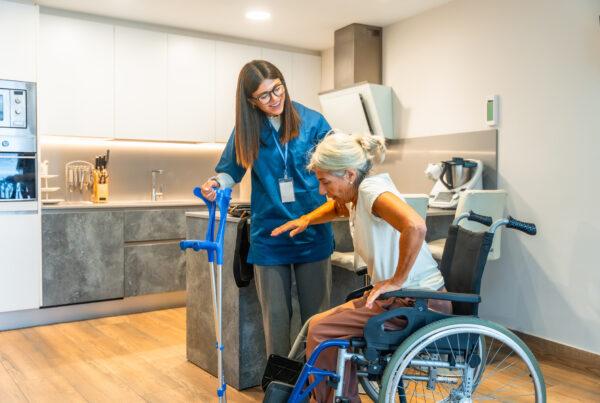 In healthcare, many roles contribute to the seamless delivery of patient care. One vital position is a Health Unit Coordinator (HUC). But what does a HUC do? They ensure the smooth operation of hospital units by managing administrative tasks and supporting medical staff.
In healthcare, many roles contribute to the seamless delivery of patient care. One vital position is a Health Unit Coordinator (HUC). But what does a HUC do? They ensure the smooth operation of hospital units by managing administrative tasks and supporting medical staff.
The Academy of Learning offers a comprehensive program that sets you on the path to becoming a successful Health Unit Coordinator. For Kaesha Milne, becoming a Health Unit Coordinator was about finding the perfect fit for her skills and interests.
Keep reading to discover more!
Understanding the Role: What Does a Health Unit Coordinator Do?
A Health Unit Coordinator plays a crucial role in the day-to-day operations of healthcare units. Their duties often include managing patient records, scheduling appointments, coordinating patient admissions and discharges, and handling communication between patients and healthcare providers.
In addition to these administrative duties, Health Unit Coordinators are often the first point of contact for patients and their families. They provide essential information, address concerns, and support, making strong communication and interpersonal skills indispensable.
Now that we’ve discussed the answer to the original question: what does a health unit coordinator do? Let’s explore the skills you’ll need to qualify for your first position and thrive in your role.

Health unit roles are in high demand, offering career college grads job security
Essential Skills for Success
To excel as a Health Unit Coordinator, several essential skills are:
- Comprehensive Medical Administrative Knowledge: Familiarity with medical terminology, anatomy and physiology, and pharmacology is crucial. This includes understanding the procedures used in medical offices and clinics and assisting healthcare professionals with various administrative tasks.
- In-depth Knowledge of Hospital Administrative Procedures: Mastery of the operations of nursing units, emergency response codes, infection control protocols, and treatment procedures is necessary.
- Computer Proficiency: Proficiency in using current software applications, solid keyboarding skills, and a good grasp of bookkeeping is vital.
- Practical Experience: Hands-on experience in a healthcare setting is invaluable. Participating in a clinical preceptorship allows aspiring Health Unit Coordinators to apply their knowledge in a real-world environment and develop the confidence needed to excel in this role.
Kaesha Milne was hired immediately after completing her practicum late last year, and she’s fitting in and flourishing in her new career as a health unit coordinator.
“I instantly fell in love with what I do. I fell in love with everyone I met in that environment. I was quite lucky because as soon as my practicum ended, I was hired, and I’m forever grateful for that,”
Choosing a program that provides students with the skills and knowledge discussed above is essential for success after medical office assistant training.

Our medical office assistant training provides you with the skills for a highly successful career
The Academy of Learning’s Medical Office Assistant Program
The Academy of Learning in Alberta offers a Medical Office Assistant with Health Unit Coordinator Diploma program designed to equip graduates to work in various healthcare settings, including physicians’ offices, clinics, mental healthcare centers, walk-in care centers, ambulatory clinics, and many more.
Whichever setting you are looking for, the industry professionals at the Academy of Learning offer unparalleled insights, “Elaine (program instructor) knew how to keep us engaged, even if it was through a computer,” said Milne. “She’d come in early or late to help you. When I say she puts everyone’s success and happiness above hers, it would be an understatement.”
The program is designed to ensure that graduates are employment-ready and comprehensively trained.
The Medical Office Assistant with Health Unit Coordinator Diploma program at our career college focuses on four key areas of skill development:
- Comprehensive Medical Administrative Knowledge: Provides an understanding of medical terminology, anatomy and physiology, pharmacology, and administrative procedures.
- In-depth Hospital Administrative Knowledge: Covers the operations of nursing units, emergency response codes, infection control, and treatment procedures.
- Computer and Office Skills: Develops proficiency in using current software applications, keyboarding skills, and bookkeeping.
- Clinical Preceptorship: This program includes a 160-hour clinical preceptorship at an approved healthcare facility, which gives students hands-on experience in a real-world setting.
Successful candidates also gain the Certified Medical Assisting Professional (CMAP) designation. This dual qualification allows graduates to work in administrative and clinical support capacities, providing a highly valued skillset in the medical industry.
Reach that moment when you experience pure joy and excitement in your career prospects. As Kaesha emphasizes, “I have never in my life seen someone love what they do more than her, and that’s when the realization kicked in that I wanted to be like that.”
Are you ready to become a health unit coordinator?
Your career awaits!




